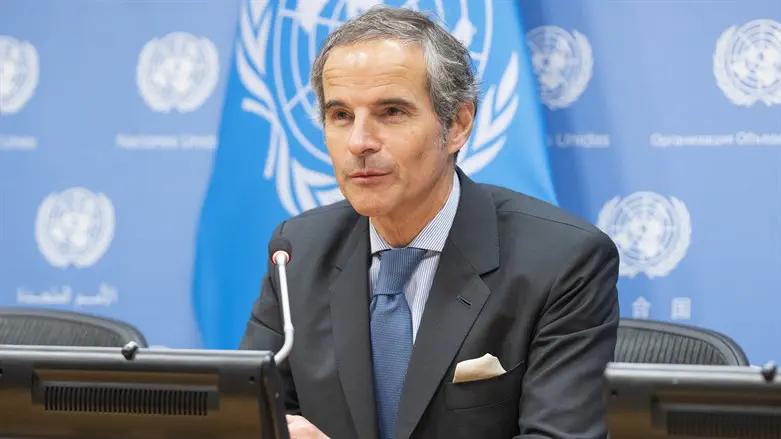
International Atomic Energy Agency (IAEA) chief Rafael Grossi warned on Wednesday that Tehran has amassed enough material for “several nuclear weapons.”
Speaking ahead of a planned visit to Tehran, Grossi told a European Parliament subcommittee in Brussels that Iran has not yet built a nuclear weapon and the West should redouble efforts to stop it from doing so.
Uranium enriched to more than 90% can be weaponized. Iran has 70 kilograms of uranium enriched to 60% purity and 1,000 kilograms to 20% purity, said Grossi, who was quoted by CNN.
The IAEA chief said he would be heading to Tehran in February for a “much needed political dialogue” despite the Joint Comprehensive Plan of Action (JCPOA), the official name of the nuclear deal signed with Iran in 2015, being “in a very bad shape.”
Grossi described the JCPOA as “an empty shell,” saying diplomatic activity linked to reviving the 2015 nuclear deal is close to non-existent.
“Nobody has declared it dead, but no obligation is being pursued, and … every limit that existed in the JCPOA has been violated several times,” Grossi said, according to CNN.
Former President Donald Trump withdrew from the 2015 Iran nuclear deal in 2018, and Iran responded by scaling back its compliance with the agreement.
The Biden administration sought to return to the deal and held indirect talks with Iran on a return to compliance.
Those talks have been stalled since September, when Iran announced it had submitted its comments to the US response to the European Union’s draft for reviving the 2015 Iran nuclear deal.
While Iran’s Foreign Ministry spokesperson said at the time that Iran’s response was prepared based on a constructive approach, a senior Biden administration official said the Iranian response "is not at all encouraging.”
A US official later said that the efforts to revive the 2015 Iran nuclear deal have “hit a wall” because of Iran's insistence on the closure of the UN nuclear watchdog's investigations.
The IAEA has asked Iran to explain why traces of uranium were detected in three areas that were not supposed to be dedicated to nuclear activity. Iran retaliated by removing 27 of the IAEA’s cameras.
On Tuesday, Grossi said that the move left his agency “blind” on several aspects, including how much material, equipment and centrifuges currently exist.
A recent report by the agency concluded there had been "no progress" in the long-standing probe.

